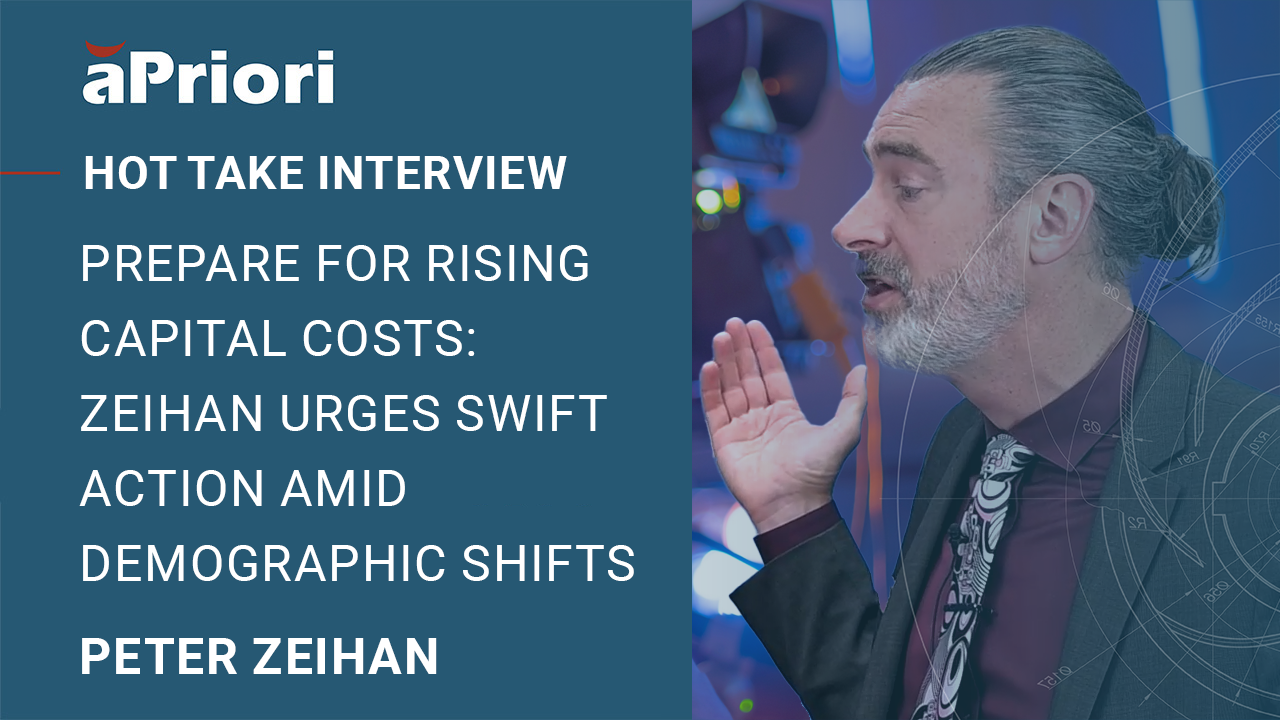Peter Zeihan: If you’re talking about pushing the technological envelope, you need a lot of young people who are wired together to imagine the future, and you have to be able to pay them until they figure out how to mass manufacture that future. Well, the millennials are aging out, and the capital has gone too because the Boomers took it with them. So we have to work with what we already know. We can apply what we know in new ways, but the whole necessity of mother invention doesn’t happen in a year. That’s a generational process.
Leah Archibald: So capital is expensive, we continue to have to spend it because there’s not a better day coming in the future. This is not a recession, and that’s a little dip that…
Peter Zeihan: Exactly. You do it as soon as you possibly can, ’cause capital rates are going to go up for at least the next 10 years, and in 10 years, we’d better have this transition behind us.
Leah Archibald: I want you to explain why again, because there are listeners who hear you say capital rates are going up for the next 10 years, and they shut off because they say, “That is not what my internal forecasting team is telling me.”
Peter Zeihan: If capital caps go up like that, things will break. Things are gonna break.
Leah Archibald: They go, “This guy is a nut,” so tell them why you’re not a nut they need to listen.
Peter Zeihan: 70% of global private capital is generated by people between ages 55 and 65. Their kids have moved out, their house has been paid down, they’re at the height of their earnings, and they’re preparing for retirement. The money that they save, that’s what drives the system. Well, the largest generation ever globally were the boomers. Half of them have already retired, so half of their assets financially have already been moved into conservative investments like T-bills in cash, because if there is a currency crisis or a market crash, they have no chance to rebuild their nest egg, there’s no more income. So they have to do that.
Normally, that doesn’t matter, but the next generation down, Gen X is the second smallest one we’ve ever had. I’m part of this generation, and there are not enough of us to fill all of those capital generating shoes, so capital costs are going up. They’ve already tripled, they’re going to triple again as the rest of the boomers leave the system, and it will remain like that until another very large generation moves up into their late 50s. That will be the millennials. But that won’t happen until 2035. So we know between now and 2035 capital costs are going to go up on average each and every year, regardless of what happens to demand or the business cycle, that’s just wired into the system at this point. And once you wrap your mind around that, you realize that today is the cheapest capital we will have access to for 12 years.


